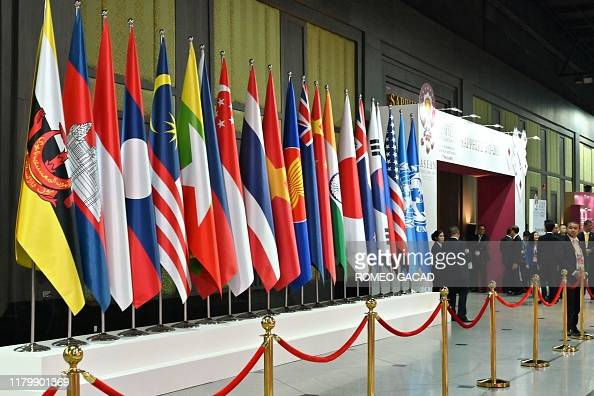UAE AND ASEAN: An Emerging Alliance
- National Eye

- Dec 30, 2021
- 3 min read
The UAE is keen to boost trade with the Association of South-East Asian Nations and create innovative ecosystems that foster long-term sustainable partnerships with the regional bloc. The opportunity comes at a "critical juncture" as the world continues to recover from coronavirus-induced slowdown and at a time of growing trade between the GCC and 10-member ASEAN bloc, that is set to reshape the future of global trade and connectivity.

The inaugural GBF Asean meeting comes before the January 1 enforcement of the Regional Economic Comprehensive Partnership (RCEP), which is expected to be the world's largest free trade deal. It will cover $26.2 trillion of global output and a market of 2.2 billion people, and add about $186bn to the global gross domestic product within nine years. The ASEAN bloc includes Brunei, Cambodia, Indonesia, Laos, Malaysia, Myanmar, the Philippines, Singapore, Thailand, and Vietnam. Non-ASEAN signatories to the RCEP include Australia, China, Japan, and New Zealand.
"The world has witnessed the unprecedented trend of deepening economic integration, along with globalization and trade liberalization," Nguyen Hong Dien, Vietnam's Minister of Industry and Trade, said at the event.
"ASEAN stays firm with the commitments of economic integration, taking the promotion of regional and-international economic co-operation as a tool to mitigate the negative impacts of Covid-19 and promote post-pandemic economic recovery."

The digital economy will be critical to driving growth in Asean's key sectors. Executives in transport and logistics (90 percent), agriculture and food (90 percent), retail and e-commerce (87 percent), and financial services and FinTech (83 percent) were most optimistic about revenue expansion in 2022, according to a survey released on Wednesday by the Economist Intelligence Unit and the Dubai Chamber. The growing use of digital platforms is expected to enhance efficiency and help companies to deliver innovative services to businesses and consumers. A greater share of respondents expect most of their revenue to be secured through online channels in 2022 (67 percent), compared with 2019 (26 percent), it said. The global economic slowdown due to the Covid-19 pandemic caused real GDP in the ASEAN region to drop by 4.3 percent in 2020, according to EIU estimates. Contraction in trade activity was modest, with total exports from Asean having fallen to $1.39tn in 2020, from $1.42tn the previous year. Although more than 40 percent of respondents reported a contraction in revenue in last year, the revenue of 32 percent expanded. However, 70 percent of those in health care, 67 percent in financial services and FinTech, and 50 percent in professional services and marketing said revenue expanded in 2020, according to the study. UAE entities have signed numerous partnerships with their ASEAN peers, driving investment across smart city development, knowledge transfer, healthcare delivery, technology, manufacturing, food and beverage, retail, e-commerce, ports and logistics, FinTech, and hydrocarbon storage, Ms. Al Hashimy said. The Emirates has invested about $10bn since 2016 in ASEAN markets, accounting for more than 70 percent of total investments from the Gulf.

Food and beverage imports from the bloc to the UAE topped $800 million in 2020. The bloc also accounted for more than 70 percent of Dubai's palm oil imports and about a third of its coffee and tea.
The number of ASEAN companies registered with the chamber stands at more than 3,300, up 35.5 percent since 2018, with non-oil trade between Dubai and ASEAN nations in the last five years at $110bn, Abdulaziz Al Ghurair, chairman of Dubai Chamber, said in his speech.
"Yet, there is huge potential to expand bilateral trade further and tap into existing synergies. In order for this to happen, we must work together to remove trade barriers, facilitate the ease of doing business and identify new areas where we can align our ambitions.”






Comments